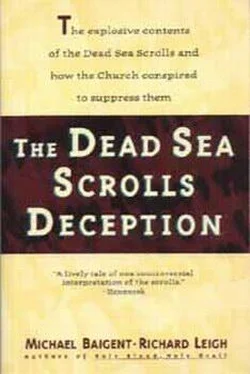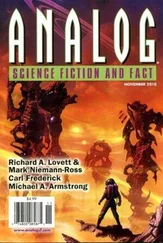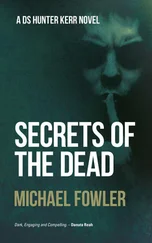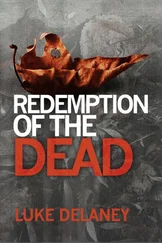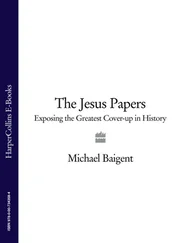Baigent’s first questions concerned the formation and purposes of the ‘Oversight Committee’. Mrs Sussman, at that point, apparently regarding her interviewer not as a researcher with some background in the subject, but as a casual journalist skating on the surface of a story, imprudently confided that the committee had been formed to deflect criticism from the Department of Antiquities. In effect, Baigent was given the impression that the committee had no real interest in the scrolls themselves, but was merely a species of bureaucratic screen.
What was its nominally official role, Baigent asked, and how much actual authority did it exercise? Mrs Sussman remained vague. The committee’s job, she said, was to ‘advise’ Amir Drori, Director of the Department of Antiquities, in his dealings with Professor Strugnell, chief editor for any publication of Qumran material. The committee intended, she added, to work closely with Strugnell, Cross and other members of the international team, towards whom the Department of Antiquities felt an obligation. ‘Some,’ she declared, ‘have gone very far with their work, and we do not want to take it away from them.’ 15
What about BAR’s suggestion, Baigent asked, and the resolution adopted by the convention at Mogilany two months before — of making facsimiles or photographs available to all interested scholars? Mrs Sussman’s gesture was that of a woman dropping an irrelevant letter into a wastepaper basket. ‘No one discussed it seriously,’ she said. On the other hand, and somewhat more reassuringly, she stated that the new timetable, according to which all Qumran documents would be published by 1996, was correct. ‘We can reassign,’ she stressed, ‘if, for example, Milik doesn’t meet the dates.’ 16Every text in Milik’s possession, she emphasised, had been allocated a publication date in the schedule. At the same time, she acknowledged her sympathy for Strugnell’s position. Her husband, she revealed, a professor of Talmudic studies, was helping Strugnell on the translation — all 121 lines of it — of the long-delayed ‘ MMT’ document.
So far as Mrs Sussman was concerned, everything on the whole seemed to be in order and proceeding acceptably. Her chief preoccupation, however, seemed to be less the Qumran material itself than the adverse publicity directed at the Department of Antiquities. This profoundly disturbed her. The scrolls, after all, were ‘not our job’. ‘Why is it causing trouble?’ she asked, almost plaintively. ‘We have other, more important things to do.’ 17
Baigent, needless to say, left the meeting disquieted. It is accepted wisdom in Israel that if one wishes to bury a subject, one creates a committee to study it. And as a matter of historical fact, every previous official attempt to oversee the work of the international team had been circumvented by de Vaux and Benoit. Was there any reason to suppose the situation would change?
The following day, Baigent met with Professor Shemaryahu Talmon, one of two scholars at Hebrew University who were also members of the ‘Oversight Committee’. Professor Talmon proved to be congenial company indeed — wry, witty, well-travelled, sophisticated. Unlike Mrs Sussman, moreover, he seemed to have not only an overview of the problem, but a familiarity with its minutiae and details — and a manifest sympathy for independent scholars seeking access to the Qumran material. Indeed, he said, he had had difficulties himself in the past, had been unable to obtain access to original texts, had been obliged to work with transcriptions and secondary sources — whose accuracy, in some instances, had subsequently proved to be questionable.
’Controversy is the lifeblood of scholarship,’ Professor Talmon declared at the very beginning of Baigent’s meeting with him. 18He made it clear that he regarded his membership of the ‘Oversight Committee’ as a welcome opportunity to help change the situation. ‘If it is only a watch-dog committee,’ he said, ‘then I shall resign.’ 19The committee, he stressed, had to be able to achieve some concrete results if it was to justify its existence. He acknowledged the problems confronted by the international team: ‘Scholars are always under pressure and always take on too much. A deadline is always dead. ‘ 20But, he added, if a particular researcher had more texts in his possession than he could effectively handle, he must pass some of them on. The committee would ‘encourage’ researchers to do precisely this. In passing, Talmon also mentioned that, according to rumour, there were still large fragments in the archives, hitherto unknown and yet to be assigned. This rumour was subsequently to prove correct.
Baigent asked Professor Talmon about the fuss resulting from Eisenman and Davies’s requesting to see certain documents. Talmon said he was wholly in favour of access being granted them. There was, he stated, a ‘need to help people in utilising unpublished information. This is a legitimate demand.’ 21The scrolls, he concluded, should be made available to all interested and qualified researchers. At the same time, he acknowledged that certain technical difficulties had to be sorted out. These difficulties, which were now being taken in hand, fell under three headings: first, the now out-of-date and superseded catalogue needed revision and updating; second, there was still no full inventory of all the scrolls and scroll fragments, some of which were still unassigned (’the only person who knows what is where is Strugnell’); and finally, there was an urgent need for a general concordance encompassing all the known texts.
As for the timetable according to which everything would be published by 1996, Talmon was honestly doubtful. Quite apart from whether or not the international team met their deadlines, he queried whether Oxford University Press would be able to produce so many volumes in so short a time. Looking at the schedule, he observed that no fewer than nine volumes were due to appear between 1990 and 1993. Could OUP cope with this? And could Strugnell handle the editing of so much while still pursuing his own research?
If they arose, however, these obstacles would at least be legitimate obstacles, not attributable to obstruction or deliberate withholding of material. They were, in effect, the only obstacles Talmon was prepared to tolerate. This was genuinely reassuring. In Talmon, the ‘Oversight Committee’ appeared to have a serious and responsible scholar who understood the problems, was determined to confront them and would not be deflected by obfuscation.
Baigent had learned that the ‘Oversight Committee’ was scheduled to meet the following day, at ten in the morning. He had therefore arranged a meeting for nine o’clock with Professor Jonas Greenfield, another member of the committee who was on the staff at Hebrew University. He put to Greenfield what had now become a routine question — would the ‘Oversight Committee’ ‘have teeth’? ‘We would like it to have teeth,’ Greenfield replied, ‘but they will have to grow.’ 22Having nothing to lose, Baigent decided to put the cat among the pigeons. He repeated to Professor Greenfield what Ayala Sussman had said to him — that the committee had been formed primarily to deflect criticism from the Department of Antiquities. Perhaps this would elicit some reaction.
It most certainly did. The next morning, Mrs Sussman telephoned Baigent. Sounding somewhat rattled at first, she stated she was annoyed with him for telling Professor Greenfield she had made so dismissive a remark. It wasn’t true, she protested. She couldn’t possibly have said anything like that. ‘We are very keen,’ she stressed, ‘for this committee to do things.’ 23Baigent asked if she wished him to read back to her his notes; when she said yes, he did so. No, Mrs Sussman insisted: ‘The committee was formed to advise the Department [of Antiquities] on sensitive matters.’ 24As for her dismissive remarks, she had thought she was speaking ‘off the record’. Baigent replied that he had originally arranged his interview with Amir Drori, the department’s director, in order to obtain, precisely for the record, a statement of official policy on the matter. Drori had passed him on to Mrs Sussman, whom he had no reason to suppose was expressing anything other than the ‘official line’. The interview, therefore, had been very much ‘on the record’.
Читать дальше
